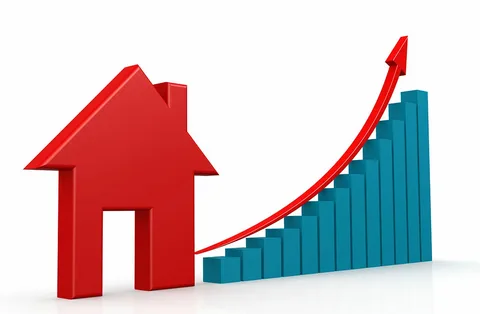Shifting from renting to owning a home is a significant step that requires careful financial planning. One of the most effective tools to aid in this process is a mortgage calculator. This guide will walk you through the benefits of homeownership, the importance of using a mortgage calculator, and how it can help you make informed decisions about your future.
Understanding the Transition from Rent to Own
The Benefits of Homeownership Owning a home offers numerous advantages over renting. Not only does it provide stability and a sense of ownership, but it also allows you to build equity over time. As you pay down your mortgage, your ownership stake in the property increases, which can be a valuable financial asset.
Common Misconceptions About Renting vs. Owning Many people believe that renting is always cheaper than owning, but this isn’t always the case. While renting can have lower upfront costs, owning a home can be more cost-effective in the long run. With a mortgage, your monthly payments contribute to an asset you own, whereas rent payments do not.
Why Use a Mortgage Calculator?
How Mortgage Calculators Work Mortgage calculators are online tools that help you estimate your monthly mortgage payments based on various factors like loan amount, interest rate, and loan term. By inputting these details, you can get a clear picture of what you can afford and how different variables affect your payments.
Key Features of a Good Mortgage Calculator A good mortgage calculator should offer features like amortization schedules, extra payment options, and the ability to factor in taxes and insurance. These features help provide a comprehensive view of your potential mortgage costs, allowing you to make better-informed decisions.
Getting Started: Using a Mortgage Calculator
Inputting Your Financial Information To get the most accurate results from a mortgage calculator, you need to input precise financial information. This includes your income, down payment amount, loan term, and interest rate. The more accurate your inputs, the more reliable your results will be.
Interpreting the Results Once you’ve entered your information, the calculator will provide an estimate of your monthly mortgage payment. This estimate includes the principal and interest, and can also factor in taxes and insurance if those options are available. Use this information to compare different loan scenarios and determine what fits your budget.
From Rent to Own: A Financial Comparison
Comparing Monthly Rent and Mortgage Payments One of the first steps in transitioning from rent to own is comparing your current rent payments to potential mortgage payments. Use the mortgage calculator to see how different loan amounts and interest rates affect your monthly payment. This comparison helps you understand if owning a home is financially feasible for you.
Long-Term Financial Benefits of Owning While the initial costs of buying a home can be higher than renting, the long-term benefits often outweigh these costs. Owning a home can provide financial stability, potential tax benefits, and the opportunity to build equity. Over time, these advantages can lead to significant financial gains compared to renting.
Key Factors Affecting Your Mortgage Calculation
Interest Rates Interest rates play a crucial role in determining your mortgage payment. Even a small difference in rates can significantly impact your monthly payment and the total cost of your loan. Keep an eye on current market rates and use the mortgage calculator to see how changes in interest rates affect your payment.
Down Payments The size of your down payment directly affects your mortgage amount and interest rate. A larger down payment can reduce your monthly payments and overall interest costs. Use the calculator to see how different down payment amounts impact your mortgage.
Loan Terms Loan terms, such as the length of the mortgage, also affect your payments. Shorter loan terms typically have higher monthly payments but lower overall interest costs. Longer terms have lower payments but higher total interest. Use the calculator to explore different loan terms and find the best option for your financial situation.
Planning Your Home Purchase
Setting a Budget Before you start house hunting, it’s important to set a realistic budget. Use the mortgage calculator to determine what you can afford based on your income, savings, and other financial obligations. This helps you avoid overspending and ensures you stay within your means.
Saving for a Down Payment A significant down payment can lower your monthly mortgage payments and reduce the amount of interest you pay over the life of the loan. Start saving early and explore different strategies, such as setting up a dedicated savings account or cutting unnecessary expenses, to build your down payment fund.
Understanding Different Types of Mortgages
Fixed-Rate Mortgages Fixed-rate mortgages offer stability with a consistent interest rate and monthly payment throughout the loan term. This predictability makes budgeting easier and protects you from potential interest rate increases.
Adjustable-Rate Mortgages Adjustable-rate mortgages (ARMs) typically start with a lower interest rate that can change over time. While the initial payments might be lower, the rate adjustments can lead to higher payments in the future. Use the mortgage calculator to see how an ARM might affect your long-term costs.
Using a Mortgage Calculator for Budgeting
Estimating Monthly Payments A mortgage calculator can help you estimate your monthly payments based on different loan scenarios. This includes the principal and interest, as well as additional costs like taxes and insurance. Use these estimates to plan your budget and ensure you can comfortably afford your mortgage payments.
Planning for Additional Costs Owning a home comes with additional costs beyond the mortgage payment, such as maintenance, repairs, and utilities. Use the mortgage calculator to factor in these expenses and get a comprehensive view of your homeownership costs.
Real-Life Case Studies
Success Stories of First-Time Homeowners Hearing from others who have successfully transitioned from renting to owning can provide valuable insights and inspiration. Learn from their experiences, challenges, and strategies to make your own journey smoother.
Lessons Learned from Real Homebuyers Real-life case studies can also highlight common pitfalls and mistakes to avoid. Use these lessons to better prepare yourself for the homebuying process and make informed decisions.
Advanced Features of Mortgage Calculators
Amortization Schedules Amortization schedules show how your payments are applied to principal and interest over time. This feature helps you understand the progression of your loan and the impact of extra payments on reducing your loan balance.
Extra Payment Options Some mortgage calculators allow you to factor in extra payments towards the principal. Making additional payments can shorten your loan term and save you money on interest. Use this feature to explore different payment strategies and their long-term benefits.
Common Mistakes to Avoid
Overestimating Your Budget It’s important to be realistic about what you can afford. Overestimating your budget can lead to financial strain and difficulty making payments. Use the mortgage calculator to set a budget that fits your income and expenses.
Ignoring Additional Costs Many first-time homebuyers overlook additional costs like maintenance, repairs, and insurance. These expenses can add up and affect your overall budget. Use the calculator to account for these costs and avoid surprises.
How Economic Factors Impact Mortgage Rates
The Role of the Federal Reserve The Federal Reserve’s decisions on interest rates can directly impact mortgage rates. Understanding how these decisions affect the market can help you anticipate rate changes and time your home purchase accordingly.
Inflation and Mortgage Rates Inflation affects the purchasing power of money and can influence mortgage rates. Higher inflation often leads to higher rates, while lower inflation can result in lower rates. Stay informed about economic trends to better understand rate fluctuations.
The Role of Credit Scores in Mortgage Approval
Understanding Credit Scores Your credit score is a key factor in mortgage approval and the interest rate you receive. A higher score can lead to better loan terms and lower interest rates. Understand how your score is calculated and how to improve it.
Improving Your Credit Score for Better Rates Improving your credit score can take time, but it’s worth the effort for better mortgage terms. Pay down debt, make payments on time, and avoid new credit inquiries to boost your score before applying for a mortgage.
The Importance of Pre-Approval
Benefits of Getting Pre-Approved Getting pre-approved for a mortgage shows sellers you’re a serious buyer and can speed up the homebuying process. It also gives you a clear picture of what you can afford and helps you make stronger offers.
How to Get Pre-Approved The pre-approval process involves submitting financial information to a lender, who will then determine how much you’re eligible to borrow. Gather your documents, such as pay stubs, tax returns, and bank statements, and shop around for the best pre-approval offers.
Calculating the True Cost of Homeownership
Maintenance and Repairs Homeownership comes with ongoing maintenance and repair costs. Budgeting for these expenses ensures you’re prepared for unexpected issues and can maintain your home’s value.
Property Taxes and Insurance Property taxes and homeowner’s insurance are additional costs that can significantly impact your budget. Use the mortgage calculator to include these expenses in your overall homeownership costs.
From Rent to Own: Making the Decision
Evaluating Your Financial Readiness Before making the leap from renting to owning, evaluate your financial readiness. Consider your savings, debt, income stability, and long-term financial goals. Use the mortgage calculator to see if you’re prepared for the financial responsibilities of homeownership.
Long-Term Considerations Owning a home is a long-term commitment. Think about your future plans, such as career changes or starting a family, and how they might affect your ability to maintain mortgage payments. Use the calculator to ensure your home purchase aligns with your long-term goals.
FAQs
How accurate are mortgage calculators? Mortgage calculators provide estimates based on the information you input. While they’re generally accurate, actual loan offers may vary based on lender policies and market conditions.
Can a mortgage calculator help with refinancing? Yes, many mortgage calculators include refinancing features that allow you to compare your current loan with new offers, helping you determine potential savings.
What information do I need to use a mortgage calculator? You’ll need details such as your loan amount, interest rate, loan term, and down payment. Additional information, like property taxes and insurance costs, can provide more accurate estimates.
Are there free mortgage calculators available? Yes, there are many free mortgage calculators available online. These tools can help you estimate your mortgage payments and compare different loan scenarios.
How often should I use a mortgage calculator? It’s a good idea to use the calculator regularly, especially when considering new loan offers, changes in interest rates, or planning extra payments.
What if my financial situation changes? If your financial situation changes, update the data in the calculator to ensure the estimates remain accurate and reflect your current circumstances.
Transitioning from rent to own is a significant financial decision that requires careful planning and consideration. A mortgage calculator is an invaluable tool that can help you navigate this process, providing estimates, comparisons, and insights into your potential homeownership journey. Use it regularly to stay informed, make smart financial decisions, and achieve your dream of owning a home.







